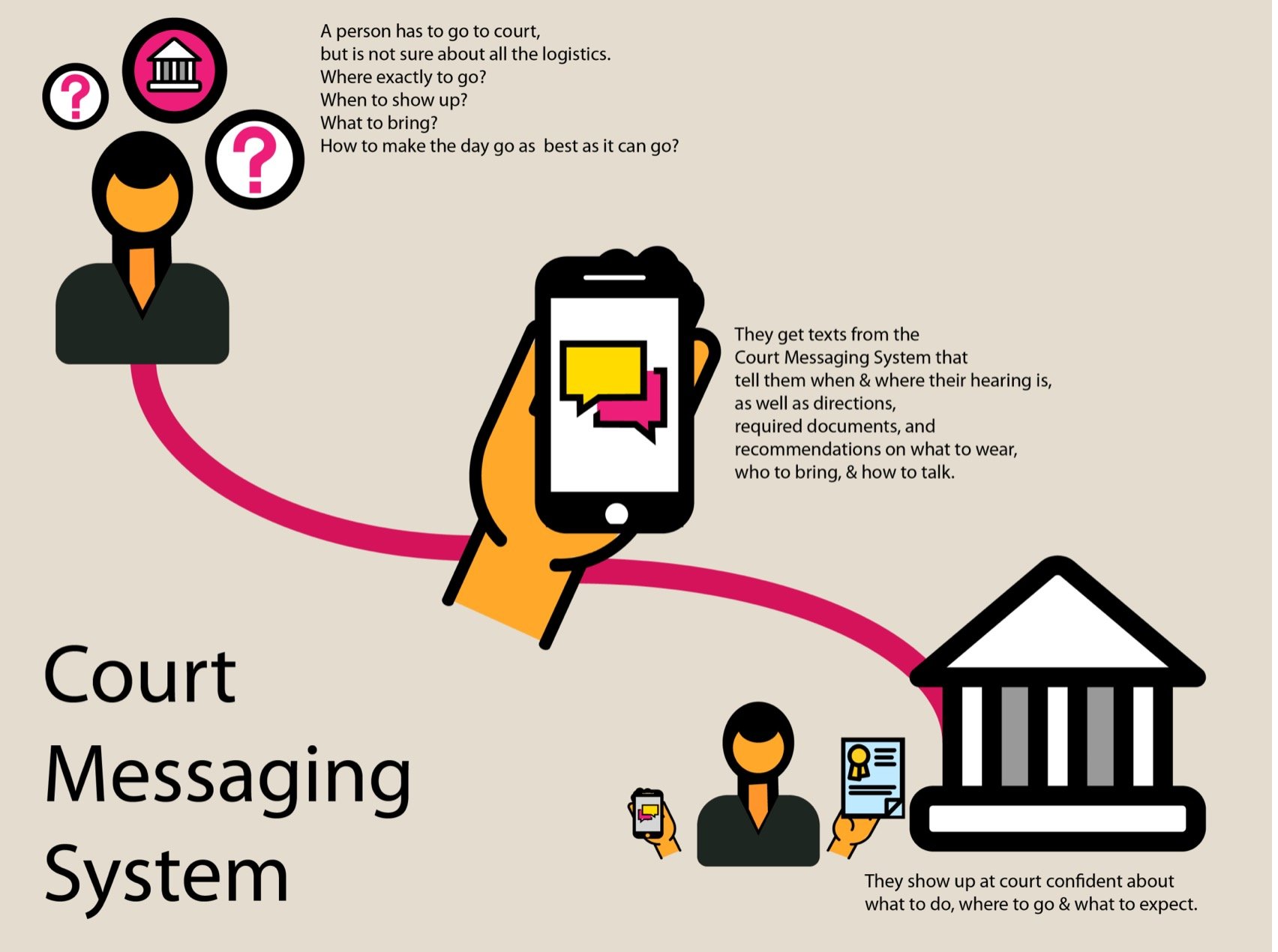The d.school’s Legal Design Lab is partnering with the Stanford Law School’s Regulation, Evaluation and Governance Lab (RegLab) to pilot a new text message reminder program in the San Mateo County traffic court.
The initiative, known as Wise Messenger, allows any court or legal services group to send automated messages to their clients. The tool was founded this month and represents a new and improved approach to a hot topic in social research: testing whether communications technologies can reduce the large number of Americans who miss court dates and suffer fines and ‘failure to appear’ charges.
“Our broad research question is, ‘Are text message reminders effective in getting people to appear for important legal dates?’” said Margaret Hagan, director of the Legal Design Lab and d.school lecturer. “These are cases where if you don’t show up, you are going to be facing penalties, especially in criminal court.”
The widespread problem of people missing court dates not only affects individuals, but also causes a ripple effect in the courts by expanding dockets and increasing workloads for court employees and law enforcement.
The project — conceived several years ago through a collaboration between different stakeholders in the court process including advocates and judges — began with the idea that traditional methods of communication such as letters and phone calls are ineffective for communicating dates and legal consequences to those most likely to miss court. However, the driving idea behind Wise Messenger is that almost everyone uses text messaging.
“It shouldn’t be that hard [or] that expensive to [give] people a reminder, a push, before an important key date,” Hagan said. Push notifications can include details on date, location, what to expect and how to prepare.
Wise Messenger also aims to improve people’s sense of procedural justice, the notion that reforming a technical or bureaucratic process can create fairer legal outcomes.
The Legal Design Lab has already conducted preliminary studies, testing Wise Messenger in a program with divorce courts in Orange County and a partnership with the Maryland public defender’s office. These studies have indicated that the technology holds promise. But those trials, the researchers said, lacked a certain scientific rigor because the process was not randomized and lacked proper control groups.
Unlike these past trials, the San Mateo version of the text messaging program will be completely automated. Users may opt in to or out of sharing their contact information. Of those who have opted in, some, but not all, will be randomly selected for anonymous automated messages from Stanford.
“We’ve been iterating and improving this project over several years, and we have found that the ideal technical design was one that [was the most automated],” said Jessica Saunders, research director at the RegLab.
Saunders added that scientific rigor is crucial to accurately observe the impact of the application alone.
Metin Eskili, software developer at the Legal Design Lab and Wise Messenger’s chief technologist, explained that he used Twilio, a cloud communications platform, to maximize the security, automation and ease of use of the application for courts and traffic court defendants.
“We used Twilio because it has some great features [allowing the program to run with virtually no human input],” he said.
The team is already looking beyond the San Mateo traffic court to other courts interested in exploring the technology.
“I like to think that with every court it gets a little easier,” Saunders said.
Contact Cooper Veit at cveit ‘at’ stanford.edu.
